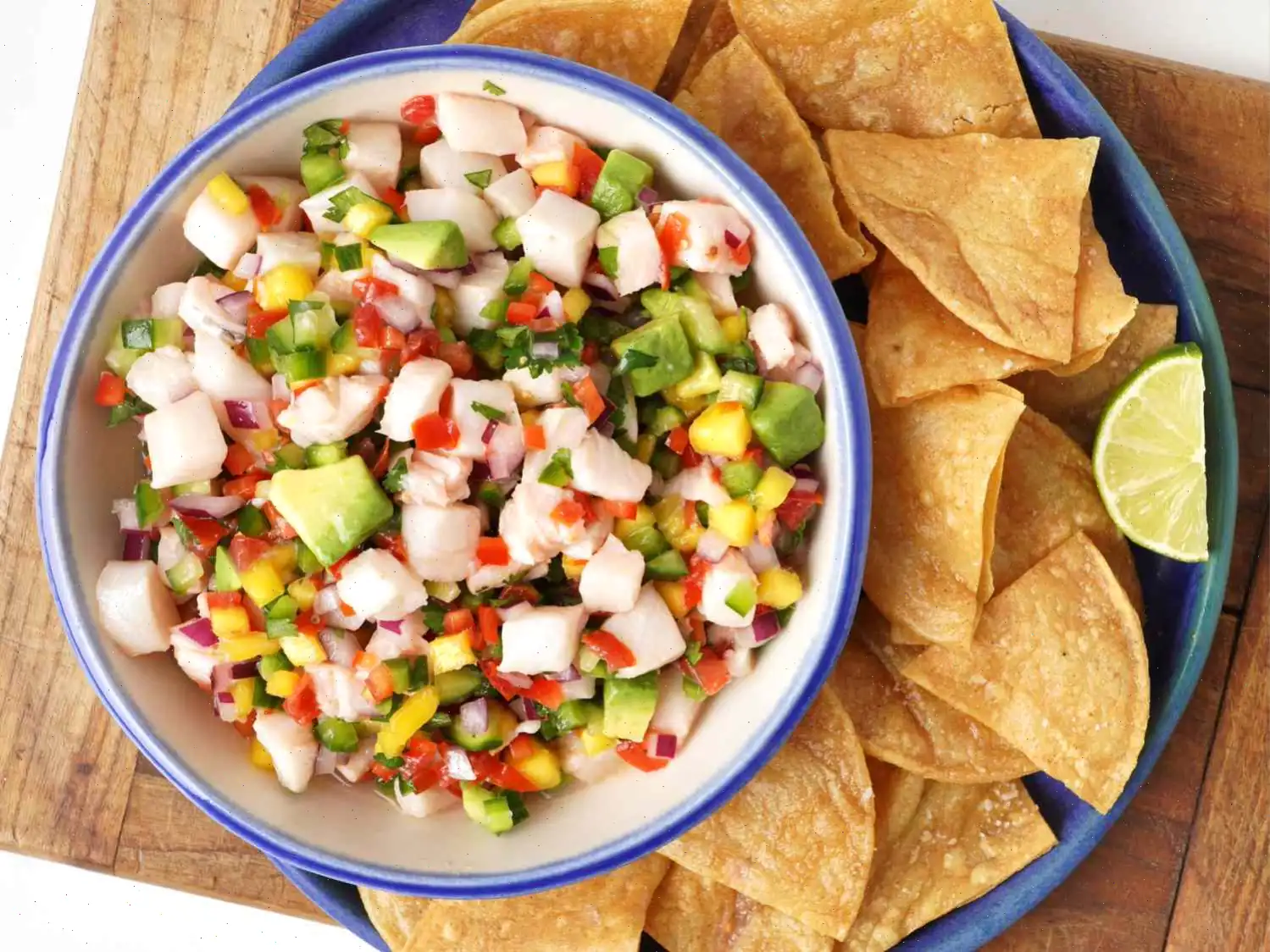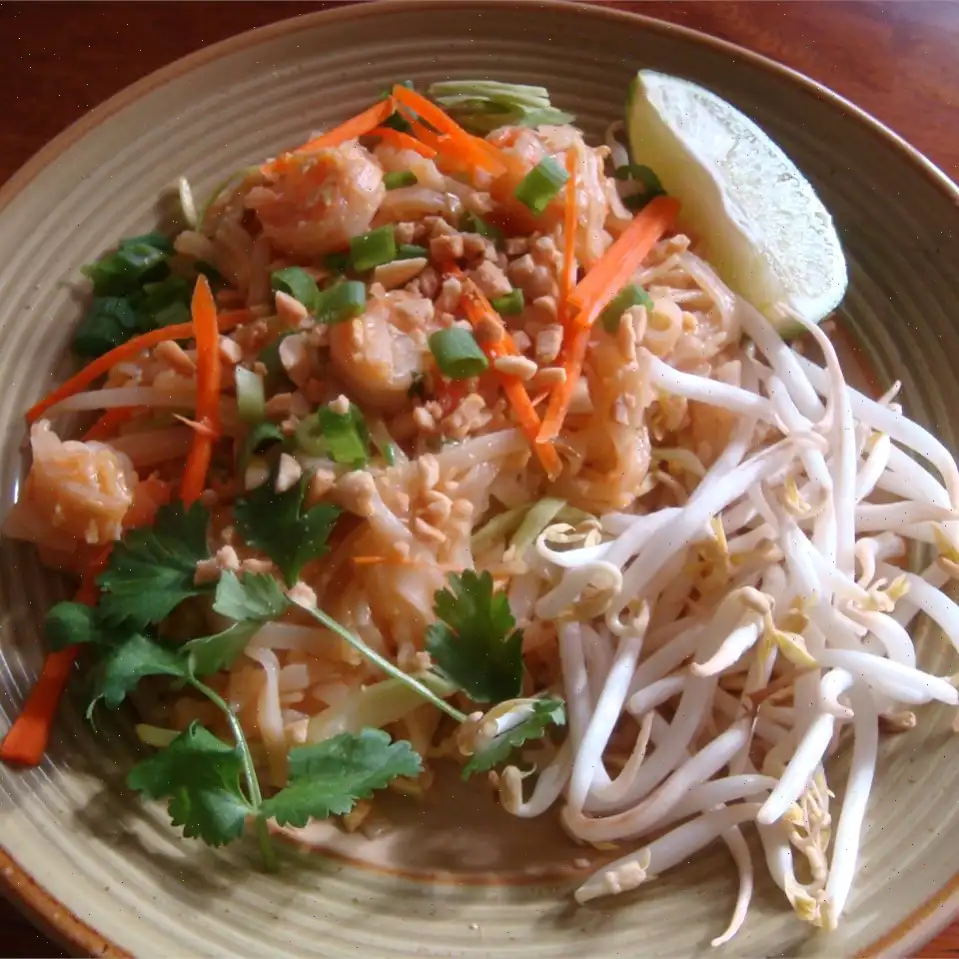
Bok Choy with Ginger Chili Sauce Recipe
Ingredients
This recipe was developed at its original yield. Ingredient amounts are automatically adjusted, but cooking times and steps remain unchanged. Note that not all recipes scale perfectly.
Original recipe (1X) yields 4 servings
- 1 1/2 pounds bok choy, cut into large chunks
- 1 teaspoon salt
- 1 tablespoon sunflower oil
- 1 tablespoon finely grated fresh ginger
- 1 red chili pepper, seeded and minced
- 2 cloves garlic, minced
- 2 tablespoons light soy sauce
- 2 teaspoons Thai fish sauce (nam pla)
Directions
Step 1: Place the bok choy in a steamer set over a pan of boiling water. Sprinkle the salt over the bok choy.
Step 2: Cover and cook until the bok choy is tender, about 3 to 5 minutes. Once done, tip the bok choy into a warmed serving dish.
Step 3: While the bok choy is steaming, heat a wok or large frying pan over high heat. Add the sunflower oil, ginger, chili pepper, and garlic to the pan and stir-fry for about 1 minute until fragrant.
Step 4: Stir in the soy sauce and fish sauce, and continue stir-frying for another 1 minute until the mixture is heated through.
Step 5: Drizzle the sauce over the bok choy and serve immediately.
Nutrition Facts (per serving)
| Calories | 66 |
| Total Fat | 4g (5% Daily Value) |
| Saturated Fat | 0g (2% Daily Value) |
| Cholesterol | 0mg (0% Daily Value) |
| Sodium | 1368mg (59% Daily Value) |
| Total Carbohydrates | 6g (2% Daily Value) |
| Dietary Fiber | 2g (8% Daily Value) |
| Total Sugars | 2g |
| Protein | 4g (8% Daily Value) |
| Vitamin C | 61mg (68% Daily Value) |
| Calcium | 170mg (13% Daily Value) |
| Iron | 2mg (12% Daily Value) |
| Potassium | 731mg (16% Daily Value) |
* Percent Daily Values are based on a 2,000 calorie diet. Your daily values may be higher or lower depending on your calorie needs.
** Nutrient information is not available for all ingredients. Amount is based on available nutrient data.
Bok Choy with Ginger Chili Sauce is a vibrant and flavorful dish that draws inspiration from the rich culinary traditions of Southeast Asia, particularly Thailand. With a simple combination of bok choy, fresh ginger, chili, and soy sauce, this dish offers a balance of heat, umami, and freshness, making it a perfect side dish for a variety of meals.
History and Origin of Bok Choy with Ginger Chili Sauce
Bok choy, also known as Chinese cabbage, has been a staple in Asian cuisines for thousands of years. The vegetable is native to China and has spread throughout various regions of Asia due to its versatility and nutritional benefits. The dish itself is a modern interpretation of traditional stir-fried and steamed vegetable recipes found in Thai and Chinese cuisine. The combination of ginger and chili adds a layer of spiciness and aromatic depth, characteristic of many Southeast Asian dishes.
Regional Variations and Influence
Though bok choy with ginger chili sauce is commonly associated with Thai cuisine, variations of the dish can be found throughout East and Southeast Asia. In Thailand, dishes featuring bok choy often incorporate elements such as Thai fish sauce (nam pla), lime, and herbs like cilantro, which add to the dishs bright, tangy flavor. In Chinese cuisine, bok choy is often stir-fried with garlic and ginger, but without the chili heat. In Malaysia and Indonesia, the sauce might include additional spices like lemongrass or tamarind, giving the dish a slightly different flavor profile.
How This Dish Differs from Similar Dishes
One key difference between bok choy with ginger chili sauce and other similar vegetable-based dishes lies in the use of the ginger-chili sauce. While many Asian vegetable dishes rely on soy sauce and garlic for flavor, the ginger and chili add a distinct punch, offering both warmth and heat. The use of Thai fish sauce also adds a savory depth, setting it apart from other stir-fried bok choy recipes that might rely solely on soy sauce or oyster sauce.
Common Occasions and Places to Serve
This dish is commonly served as a side dish accompanying a wide variety of Asian-inspired meals, particularly those with grilled meats, stir-fries, or curries. It pairs beautifully with dishes like Thai red curry, grilled chicken, or pork, and can be found on the menus of many Thai restaurants around the world. It's often served as part of a larger meal, with rice or noodles complementing the dish's bold flavors.
Interesting Facts About Bok Choy and Its Culinary Use
- Bok choy is not only flavorful but also packed with nutrients. It is an excellent source of vitamins A, C, and K, as well as calcium and iron.
- The ginger in this dish is known for its anti-inflammatory properties, making it a healthy addition to any meal.
- In traditional Chinese medicine, bok choy is believed to have cooling properties, balancing the bodys internal heat.
- The use of Thai fish sauce in this recipe is a nod to the importance of fermented ingredients in Southeast Asian cooking. It adds a salty, umami-rich depth to the dish.
- Bok choy's mild flavor makes it an ideal vegetable to absorb bold sauces and seasonings like ginger, chili, and soy sauce.
Whether you're enjoying this dish at a restaurant or preparing it at home, Bok Choy with Ginger Chili Sauce offers a delightful combination of flavors and a glimpse into the culinary traditions of Southeast Asia. It's an easy-to-make yet flavorful addition to any meal.
FAQ about Bok Choy with Ginger Chili Sauce Recipe
Comments
Aaron Ramirez
07/05/2024 01:28:44 AM
Here is the rewritten review: I couldn't find red chili pepper at my grocery store, so I improvised by using minced red bell pepper and a spoonful of red chili crisp. Instead of steaming, I heated sunflower oil and sautéed chopped onion until soft. Then I added bok choy and red bell pepper. After a few minutes, I added garlic, ginger, fish, and soy sauce. This side dish was easy to make and tasted delicious. I paired it with a pork dish from this site, but I think it would go well with many other dishes too. I absolutely loved it and will definitely make it again! Thank you, Aidan!
Dennis Adams
06/01/2025 12:34:25 AM
I enjoy this, the text is truly remarkable.








